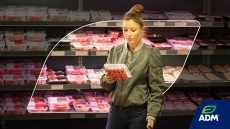What do South African consumers think of plant-based meat?

Two years ago, the South African government attempted to ban ‘meaty’ names for plant-based meat. The decision was eventually overturned by a senior court, but not before making South African plant-based meat the attention of the world.
In South Africa, the market for plant-based meat is significant compared to the rest of the African continent, and growing. However, in the country, access to conventional meat is far from taken for granted. According to one study, access to meat is a status symbol in the country.
Can plant-based meat flourish under such conditions? How do consumers perceive it?
Plant-based meat in South Africa
Plant-based meat has a significant presence in South Africa, and many international brands are widely available in shops there. More locally, one of its key meat producers, Feinschmecker Deli Meats, has a plant-based range, Gudness.
South Africa is also home to several plant-based meat companies. For example, Fry’s Family Foods, which produces a range of plant-based products including burgers, sausages and schnitzels, started in Durban, South Africa and now sells in a range of locations including the UK, the US, Australia, Germany and Thailand, as well as throughout the African continent.
Earlier this year, the Johannesburg High Court overturned a plan by the South African government to ban meat-related words on plant-based meat products (France’s attempt to implement a similar ban was recently overruled as well).
Under the ban, South Africa’s Food Safety Agency (FSA) would have seized products with meat-related names from supermarket shelves. The country’s Department of Agriculture, Land Reform and Rural Development (DALRRD) argued that this would save shoppers from confusion.
However, after an intervention by the Consumer Goods Council of South Africa (CGCSA), the high court was able to stop the seizure. This was followed by a ruling in favour of plant-based meats.
How do South African consumers view plant-based meat?
Several studies have been undertaken on how South African consumers view plant-based meat.
A study last year in the Journal of Agricultural and Applied Economics explored how South African consumers perceived plant-based meat alternatives, along with cultivated meat.
The study used a discrete choice experiment (DCE) to ascertain what choices consumers would make in a purchase situation. They were asked to choose between a beef burger, a cultivated meat burger, a plant-based burger using heme protein, and a plant-based burger using pea protein.
Consumers given no information about the products largely preferred conventional beef, followed by cultivated beef, with plant-based beef at the rear. Providing information about the sustainability credentials of these products only improved consumer desire for cultivated and plant-based meat products very slightly. With this information, the desire to consume plant-based proteins went from 21% to 25% of participants. Information on the technology increased the percentage by slightly more, to 28%.
However, when there is an option not to buy, the study suggested, providing information pulls consumers away from that option towards the plant-based option.
When asked if the use of ‘meaty’ names on plant-based products would make them more or less likely to buy said products, 37.01% said they would be more likely to buy said products with these names, and 27.67% said they would be less likely (the remaining were neither more nor less likely). 58.01% thought that companies should be allowed to use these names, while 40.99% thought they should not.
An earlier study exploring South African consumer perceptions of plant-based meat, published in the journal Frontiers in 2021, found that 67.3% of participants were willing to try it, 58.8% were likely to purchase, and 31.5% were likely to pay more. In this study, support for plant-based meat was higher than that for cultivated meat.
The study also examined motivations for early adoption, finding that the strongest were animal welfare, health, the environment, and food security, with food security in particular a key motivation. Lower household income predicted higher purchase intention.
The plant-based market in South Africa, according to Reuters, is growing at a rate of 6.5% annually.
Plant-based success in South Africa
Fry’s Family Foods started in Durban, South Africa more than thirty years ago. Tammy Fry, the company’s co-founder, suggests that plant-based now has a mainstream appeal it once did not.
“The demand for plant-based meat has grown exponentially since we began. Initially, plant-based foods were seen as niche, but today, more people are adopting or exploring a flexitarian lifestyle, looking to add more plant-based meals to their routine for various reasons—health, sustainability, or animal welfare,” she told FoodNaviagator.
“In South Africa, this shift has been gradual but is gaining momentum, especially among younger generations who are more health-conscious and eco-aware.” While plant-based meat is not as mainstream in Africa as it is in Europe, she told us, consumers are curious and open-minded about new foods.
There is a ‘strong foundation for growth’ in South Africa’s plant-based market, she told us. “South Africa has a young and dynamic population increasingly driven by health and sustainability concerns, and this age group is more open to trying alternatives to meat. South Africa is also at a point where local retailers and restaurants are starting to realize the value in catering to flexitarians, vegetarians, vegans, and everyone in between.”
Sourced From: Journal of Agricultural and Applied Economics
'The Alternative Livestock Revolution: Prospects for Consumer Acceptance of Plant-based and Cultured Meat in South Africa'
Published on: 17 November 2023
Doi: https://doi.org/10.1017/aae.2023.36
Authors: C. Tsvakirai, L. Nalley, S. Rider, E. Van Loo, M. Tshehla
Sourced From: Frontiers
'South African Consumer Adoption of Plant-Based and Cultivated Meat: A Segmentation Study'
Published on: 11 October 2021
Doi: https://doi.org/10.3389/fsufs.2021.744199
Authors: K. Szejda, M. Stumpe, L. Raal, C. E. Tapscott



































